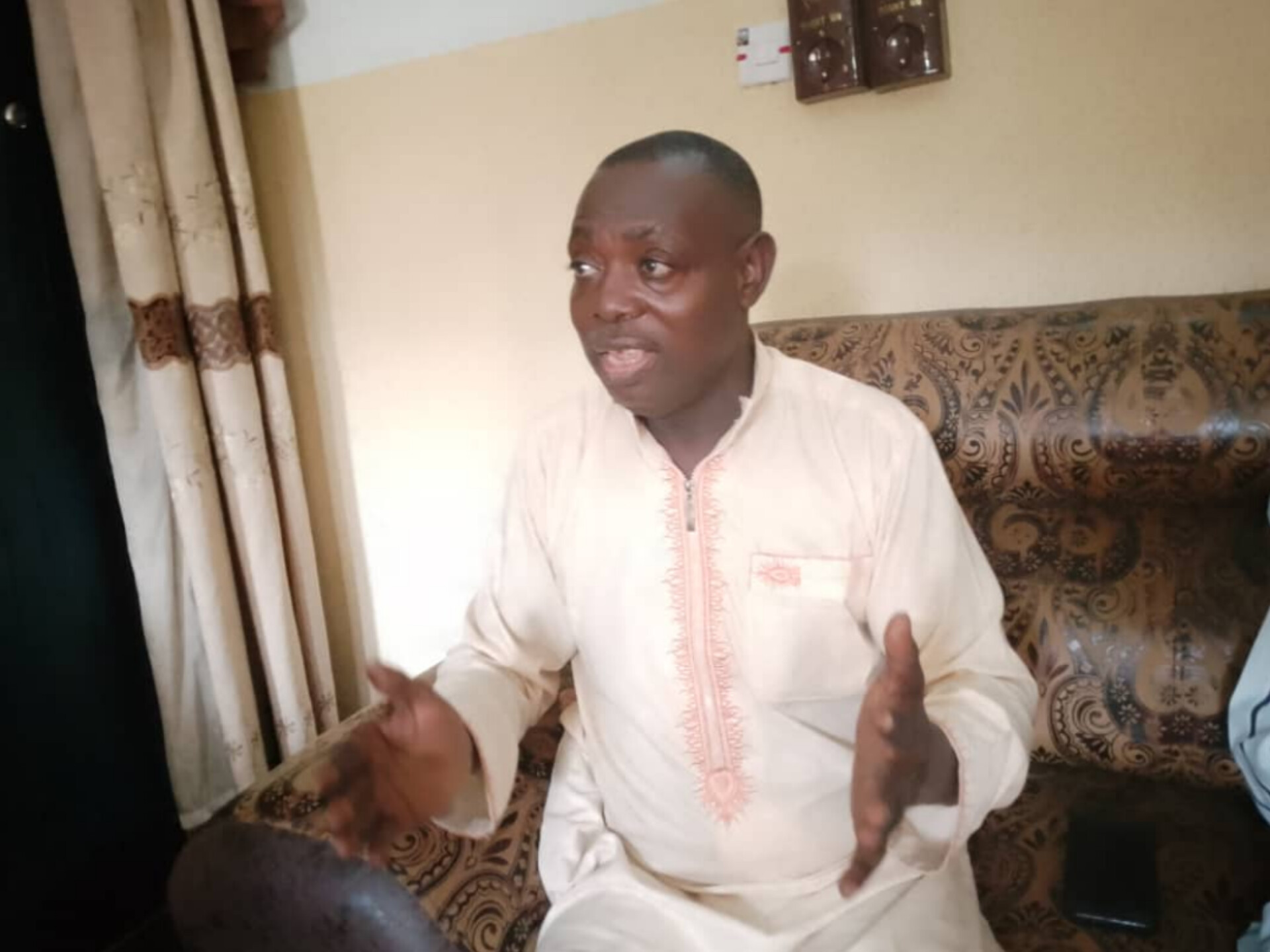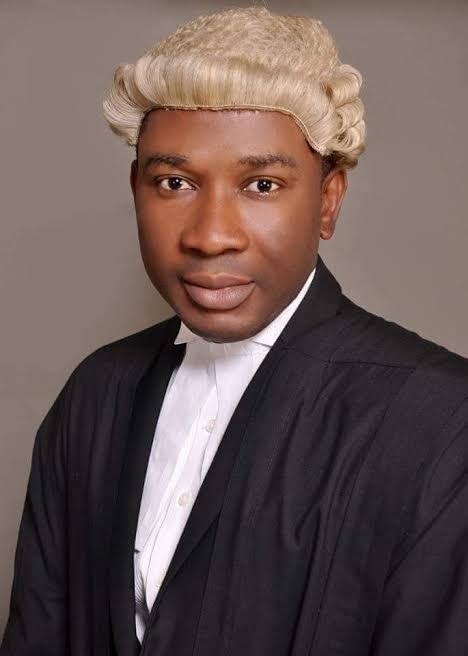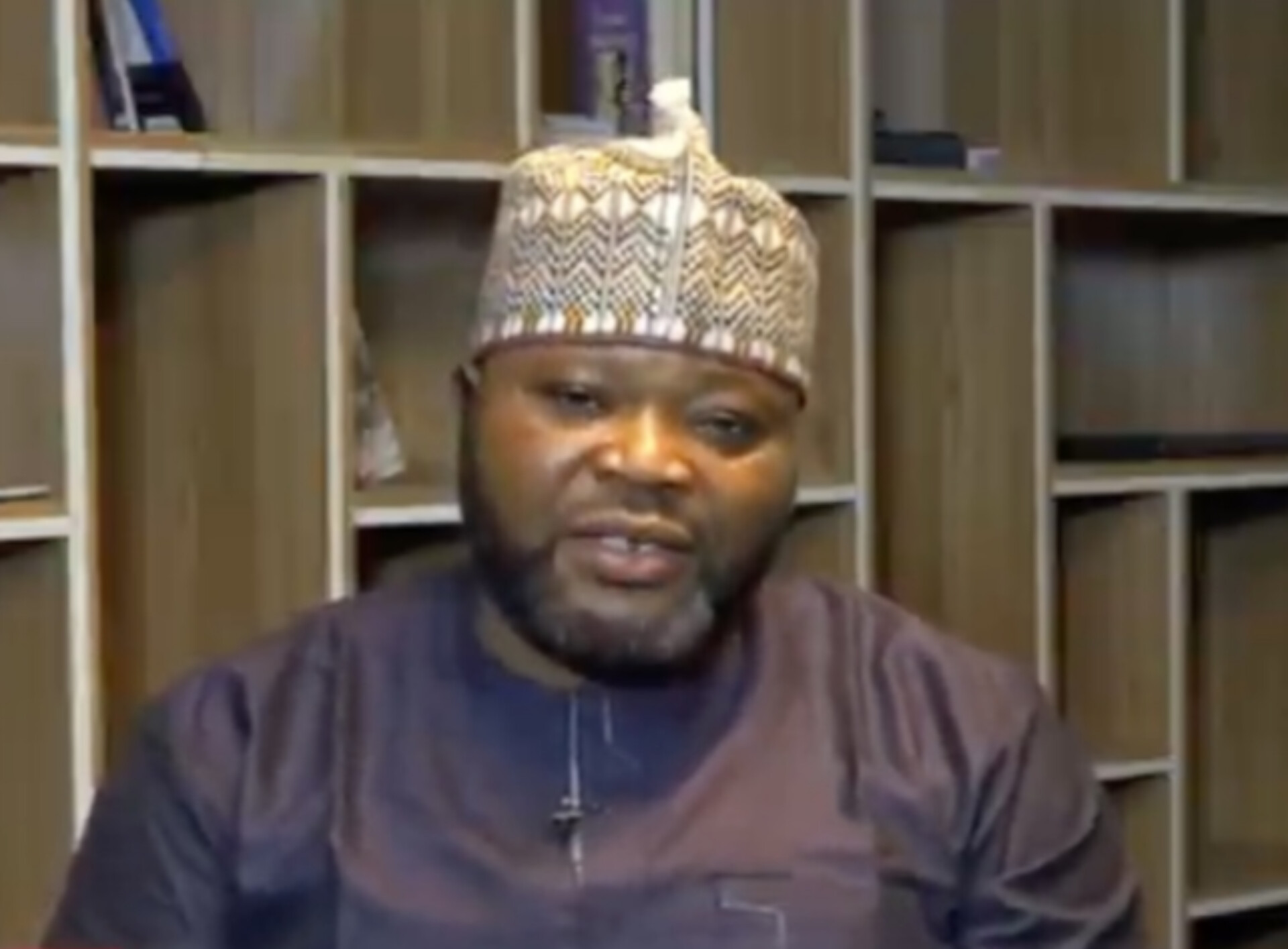News
PS Charges civil servants on full implementation of procurement process

The Permanent Secretary, Federal Ministry of Youth and Sports Development, Alhaji Ismaila Abubakar has charged the staff of the Ministry to ensure full implementation of the procurement process in line with the Act.
Director Press and Public Relations, Mohammed Manga in a statement quoted Abubakar to have given the charge on wednesday in his office in Abuja, when he declared open a One-day Procurement Workshop organised by the Procurement Department of his Ministry.
He stated that civil servants have the responsibility of ensuring the full implementation and execution of government policies, programmes and projects according to extant rules and regulations.
According to him, “The primary objective of setting up Public Procurement Act by the Federal Government was to among other things, drive the conduct of government business in a transparent and accountable manner and to further reduce cost as well as deliver works, goods and services for the betterment of the citizenry.
Alhaji Ismaila who commended the Department for organising the Workshop, called on other relevant Departments in the Ministry to come up with positive initiatives that will help in building capacity of staff for efficient service delivery to Nigerians.
According to him, the Honourable Minister of Youth and Sports Development, Mr. Sunday Dare is desirous of lifting the Ministry to a befitting status, in line with the policy thrust of the President Muhammadu Buhari-led Administration
To achieve this, the Permanent Secretary said, “Staff must ensure they work as a team for the effective realisation of these objectives”.
Earlier in his opening remarks, the Director, Procurement Department, Mr Segun Oke stated that since his assumptioin of office 18 months ago, he noticed the inadequacy of Procurement staff as well as low capacity of non-procurement staff in the understanding of laws and regulations governing procurement process as provided in the Public Procurement Act (2007) and Financial Regulations.
With the support of the top management of the Ministry, as well as other relevant Departments, Mr. Oke said, his Department was able to educate and change the orientation of some of these non-procurement staff through dialogue and personal interaction.
However the Director added, “the above scenario is not sustainable. Therefore, I believe there is need to build the system rather than personal interaction. It is on this note I sought the support and approval of the authorities to organize this one day workshop for some of the non-staff who have critical roles to play in the procurement process”.
Mr. Oke indicated that the primary objective of Public Procurement is to deliver works, goods and services necessary to accomplish government missions in a timely, economically and efficient manner explained that, “to achieve these goals, all the Ministry’s staff that are involved in the procurement process need to be trained to be able to effectively carry out their responsibilities according to the extant rules”.
News
Why oil production has not commenced in Nasarawa despite huge deposits, expert

From Daniel Abel, Lafia
Manager, Asset Integrity, NNPC-ATAMS Producing Dr. Musa Adamu has disclosed that production of oil in Nasarawa is being faced with some challenges hence the delay as they are still in the process of drilling to reach the reservoir.
Dr. Musa gave the hint in an interview with journalists in Obi, Obi local government on Tuesday.
Dr. Musa who doubled as Chairman, Obi Oil and Gas Exploration Committee explained that the current drilling activity is the Ebenyi 1 drilling site by ENSA, a branch of NNPCL in Obi.
The petroleum expert with thirty years of field experience disclosed that the estimated depth to reach the oil deposit has been narrowed the drilling is approaching a large reservoir of oil.
“When we get to the reservoir we will know the quantity and lifespan of the deposits.
He stated that there are some challenges which are not only peculiar to the Obi oil drilling as he expressed the hope that soon oil production will commence.
The Obi oil drilling which was commissioned by the formal president Buhari in March 24, 2023 is yet to commence production one year after as drilling is currently ongoing.
Musa a petroleum engineer with thirty years feild experience in so many state and currently serving as manager with the NNPC in Rivers State, assured that oil production will soon commence in ernest
Musa however noted that the reason for the delay in production is because of the physical challenges being faced in the drilling process.
Dr. Musa identified breakdown of drilling equipments and the long process of fixing of those equipments as being responsible for the delay in production, which according to him is normal.
“The equipments we are using are foreign made and because of the present stage of the drilling, breakdown of those drilling equipments is anticipated.
“Replacing those drilling equipments take time because they are imported, and you know the process of importing heavy equipments. That is the reason for the delay, but we are getting closer to the reservoir.
“We can’t tell you exactly when the drilling will be over because of the unforeseeable challenges. By God’s grace we will soon reach the target level where we will have the first oil.
He however explained that the result of previous exploration revealed that there are four major oil deposit sites in Asakio, Agwatashi, Keana and the present site where drilling is taking place in Obi.
He explained further the outcome of the exploration shows that the probability of huge deposit in those oil wells is above 70 per.cent.
“In some places in Keana the presence of oil deposit are overtly visible. You can even see spills in some places and when you fetch them it produces the odour of gas and fuel. That shows the huge oil deposit in such areas but drilling is yet to commence.
“The quantom of oil deposit from result of exploration amount to economic oil. It is not enough to discover oil and go into drilling. You must be sure the deposit amount to economic oil.
“The oil deposits in those wells is an equivalent of economic oil. The communities, State and the federal government stand to make huge profits when oil production kick start.
Dr. Musa highlight other challenges earlier faced from residents on compensations of lands where the well was discovered.
The challenges included multiple claims of land ownership by residents, but had been handled by the traditional ruler of Obi
“The traditional ruler, Alh. Aliyu Dangiwa Ogiri, the Osukwo of Obi constituted a special committee on Oil and Gas of which I am the chairman.
“The committee has help resolved so many hitches that would have spark out youth restiveness but we have intervened in and proffer solutions that he help to create a conducive working environment to the NNPCL in the community.
“The host community through the intervention of the committee are currently enjoying some benefits such as youth empowerment, scholarship.
“Over 70 per cent of the labour at the drilling site is done by youths from Obi. The NNPCL has given scholarship to some youths who showed interest in some professional career who will be employed when oil production starts proper.
Musa also hinted that the youths are happy with the current activities that has engaged them profitably and are even providing security apart from the conventional security in and around the drilling site.
As parts of their Corporate Social Responsibilities, street lights, access road and other Social amenities have been provided by the NNPCL who promised to do more as work at the site progresses.
Musa explained however that with the relationship between the host community and the NNPCL challenges being faced in some oil producing states which led to protracted youth restiveness would be greatly curtailed.
News
Ex-IPAC legal adviser tells Tinubu not to delay the regulation of prices of food items

***Naira Gains and Losses – Product of APC’s Ineptitude
Former National Legal Adviser Inter Party Advisory Council of Nigeria (IPAC) Barr. Chukwudi Ezeobika has raised issues over skyrocketing prices of goods and services amidst speculations on a daily basis that the Nigerian Naira is gaining value against the American dollar
Ezeobika who was also a Candidate Anambra South Senatorial District (2018) gave the indication in statement on Sunday.
He said the presumption of gains in the Nigerian currency may be erroneous as they are without the consequent effects on goods and services as the average Nigerian is yet to feel the impact
“The reason for this indescribable phenomenon, just as we have in every sector of the Nigerian economy, is indeed not far-fetched. The wilful resolve by the Bola Ahmed Tinubu – led APC government to continually deceive Nigerians amidst the glaring economic recession and crisis.
“It is erroneous to yield to the belief that the Nigerian currency can ever make any gains against the American dollar or its economy relevant in the global stage if the country is unable to produce the basic goods and services required by it, to build and develop its dilapidated and or non-existent infrastructure in critical sectors of the economy such as health, power, transport and agriculture.
“All known indices of economic recession are currently prevalent in the Nigerian economy as can be seen in high and unprecedented costs of goods as well as services and the continued manipulation, by the current administration, of the Nation’s currency, against the will of the Nigerian people.
“The Federal and State agencies saddled with the responsibility of regulating the prices of goods, most especially food items which are basic to an average Nigerian, have become either obsolete or
non-existent, hence, the absurdities prevalent in the prices of food commodities such as rice, yam and beans, in most Nigerian markets.
“The current administration has wilfully and consciously chosen to continue the path of its predecessors by propagating ill-conceived social and economic policies and engaging in projects that are purely unconnected and at variance with the well-being of its citizens.
“The Nigerian Legislature ought to, as a matter of urgency, re-discover its essence in enacting relevant laws which have direct bearing on the lives of ordinary citizens, re-position itself in its oversight functions and periodically justify the huge budgets passed yearly to maintain the legislative arm of the Nigerian government.
News
Ganduje: Northern Patriots accuses Kano Gov of lack of Clear Agenda

***Say, he is Progressing In Error
The Northern Patriots (NP) has take a swipe at Governor Abba Yusuf for lacking in any clear blueprint or agenda for the people of Kano State.
Comrade Dominic Alancha, the national president of the group, gave the indication during an interview on TVC’s Journalists Hangout on Sunday.
According to Alancha, the governor has instead resorted to a witch-hunt and political vendetta against his predecessor Alhaji Umar Ganduje all in the name of a probe.
Comrade Alancha indicated Governor Yusuf is progressing in error as his perceived case against Ganduje is dead on arrival as it is not within the jurisdiction of the state to probe him.
The Northern Patriots, however, advised the governor to focus on governance and if indeed he wants to recover state funds, he should look the way of Senator Rabiu Kwankwaso.
“It is unfortunate that Governor Abba Yusuf is progressing in error. Instead of focusing on advancing governance, he is out for a witch-hunt and political vendetta against his predecessor,” he said.
“I don’t think that he is aware that there is a judicial pronouncement on this matter. The state can’t prosecute Ganduje, it is the responsibility of the federal high court.
“For me, this case is dead on arrival. If he’s transparent enough, he should have gone back to 2011 or even beyond to probe his political godfather because there are a lot of accusations against Senator Rabiu Kwankwaso of corruption and misappropriation of state resources.
“For example, in 2011, there was a 5km contract purportedly allocated to each of the 44 LGAs. Unfortunately, to date, 1km of that road has not been constructed.
“If any probe is to be done, it should be based on transparency and accountability. But this whole case is diverting the attention of the people from seeking transparency and good governance from the governor.
“Abba has nothing to point out as his achievement in the last 11 months. Rather, he is busy setting up committees to probe his predecessor.
“I think it is proper for him to sit down and make his priorities known. He should set out a clear agenda for the people. ”
-

 Crime6 months ago
Crime6 months agoPolice nabs Killer of Varsity Lecturer in Niger
-

 News3 months ago
News3 months agoFCT-IRS tells socialite Aisha Achimugu not to forget to file her annual returns
-

 Appointment7 months ago
Appointment7 months agoTinubu names El-Rufai, Tope Fasua, others in New appointments
-

 News From Kogi5 months ago
News From Kogi5 months agoINEC cancells election in 67 polling units in Ogori-Magongo in Kogi
-

 News From Kogi8 months ago
News From Kogi8 months agoEchocho Challenges Tribunal Judgment ordering rerun in 94 polling units
-

 News7 months ago
News7 months agoIPOB: Simon Ekpa gives reason for seperatists clamour for Biafra
-

 Metro4 weeks ago
Metro4 weeks ago‘Listing Simon Ekpa among wanted persons by Nigeria military is rascality, intimidation’
-

 News3 months ago
News3 months agoKingmakers of Igu/ Koton-Karfe dare Bello, urge him to reverse deposition of Ohimege-Igu

